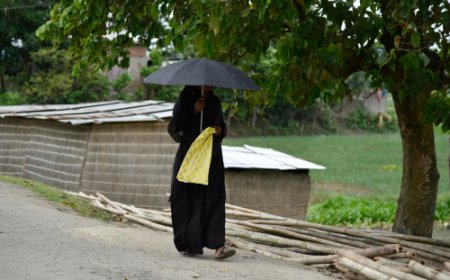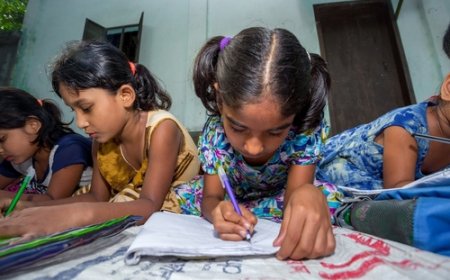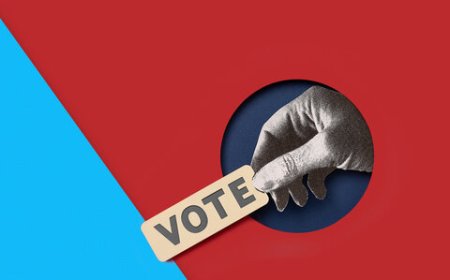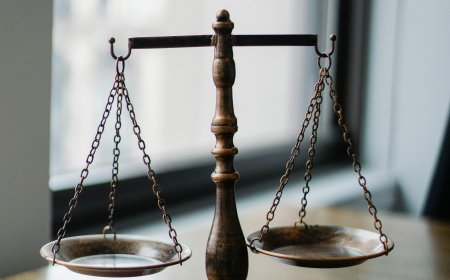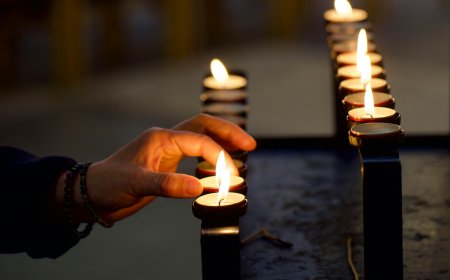The Men We Forgive, the Women We Destroy
So yes, what Tangia did was wrong, absolutely no doubt. But let's not pretend this outrage is about justice. Justice would mean holding everyone to the same standard. This is about control. And we really need to talk about who we're controlling, and why.

Let's talk about what really gets you cancelled in Bangladesh.
Filming someone in a bathroom? Unforgivable. National scandal. Career-ending offense.
The pitchforks come out, the think pieces flow, and suddenly everyone's a moral philosopher debating accountability and second chances.
Rape? Well, depends on your batting average.
Because here's what we conveniently forget when we're clutching our pearls over Tangia Zaman Methila: Bangladeshi men have represented our country -- not just represented, but led our country -- after being accused and convicted of rape, match-fixing and gambling, assault and battery of domestic workers, and directly collaborating with a government that murdered hundreds of students.
Not one of them apologized. But somehow a woman filming someone in a washroom is treated like a crime against humanity while rapists get to captain national teams.
Let that marinate.
The Men We Celebrate
Shahadat Hossain was arrested for torturing an 11-year-old domestic worker. His career barely stuttered. Players convicted of spot-fixing? They did their time and came back to heroes welcomes, one is literally our national cricket coach.
Our bowling attack a few world cups ago was literally led by a potential rapist who was freed on bail in the most dubious circumstances literally a few days before the tournament.
Shakib Al Hasan recently admitted to working with the Awami League during a period when the government was actively killing protestors, many of them students barely out of school. The outrage lasted about a news cycle. Now we're back to discussing his strike rate.
These men didn't just escape consequences. They were promoted. Glorified. Given leadership positions. Made into national icons. Their faces are on billboards. Children wear their jerseys.
Meanwhile, Tangia films a questionable video and suddenly we're having a national conversation about accountability, moral standards, and whether she deserves to represent Bangladesh.
The math isn't mathing.
Men come from Mars, women, another universe. Let’s keep them there. Want to see how differently we treat women? Go watch those recent videos of men interviewing women for smoking in public. The women are harassed, shamed, questioned about their morals and their families. They're portrayed as fallen women, sluts corrupting society's fabric.
The men smoking right next to them? Invisible. Blameless. Just guys being guys.
This isn't an accident. This is the system working exactly as designed.
The rules are different because the game is rigged.
Patriarchy's Ledger
Let's be clear about what we're actually measuring when we judge women versus men. It's not about the severity of the crime. It's about control.
Patriarchy doesn't actually care that much about morality. It cares about obedience.
When a man commits a crime, it's unfortunate but ultimately tolerable because he's still operating within the power structure that benefits him. When a woman steps out of line, even slightly, she's challenging that entire structure.
That's why Tangia's video became a scandal while actual violence gets yawns. Her crime wasn't filming someone without consent (though that's bad enough).
Her crime was being a woman who didn't stay in her lane.
And Bangladesh? We've perfected this double standard into an art form. Our political economy is built on it. The same systems that allowed the Awami League to murder students with impunity are the ones that let men commit domestic violence without consequences. It's all the same power structure. The same boys will be boys expanded to men will be murderers, and that's just politics.
We've created a society where women are punished for existing too loudly while men are rewarded for destroying lives quietly.
The Question We're Not Asking
Here's what nobody wants to confront: Why are we so invested in punishing Tangia? Is it really about the bathroom video? Or is it about a woman representing Bangladesh on a global stage while refusing to be perfectly subservient? Is it about accountability, or is it about putting an ambitious woman back in her place?
Because if we actually cared about accountability, we'd start with the rapists and murderers. We'd demand answers from the men whove committed actual violence. We'd stop electing and celebrating and promoting men who've destroyed lives.
Instead, we save our rage for women who film bad videos. That tells you everything about what we really value.
Tangia's incident isn't an isolated case of bad judgment requiring accountability. It's a symptom of a much larger disease: a society that has decided women should be held to impossible standards while men can literally get away with murder.
Every time we focus on a woman's relatively minor transgression while ignoring men's major crimes, we're reinforcing the very system that keeps women down. We're saying that a woman's worth is tied to her perfect behavior while a man's worth is inherent regardless of his actions.
We're saying that women must earn their humanity while men are simply born with it. And until we confront that embedded misogyny, until we acknowledge that the standards are different because we want them to be different, we'll keep having these same conversations.
Different woman, different transgression, same fundamental injustice.
So yes, what Tangia did was wrong, absolutely no doubt. But let's not pretend this outrage is about justice. Justice would mean holding everyone to the same standard. This is about control. And we really need to talk about who we're controlling, and why.
Faruq Hasan is a development worker and a political analyst.
What's Your Reaction?













